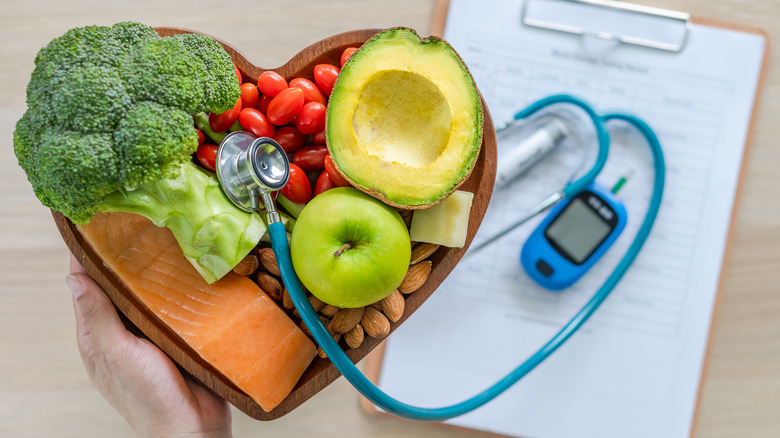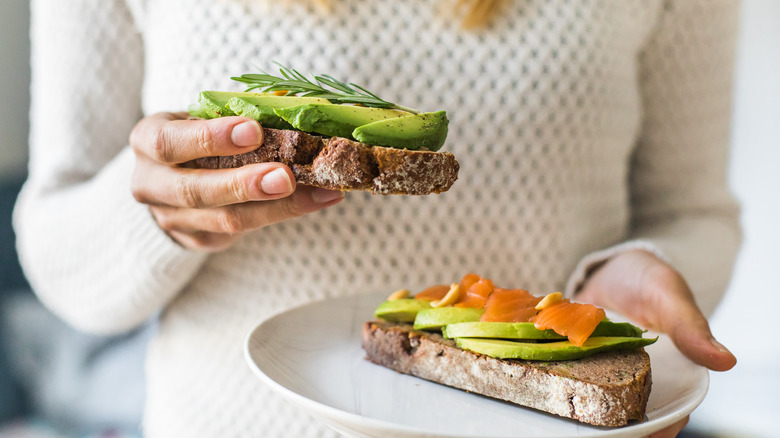What Exactly Is The Keto Diet?
The Keto Diet is a low-carb diet that tricks the body by taking advantage of its natural processes. According to the Cleveland Clinic, ketosis is the metabolic breakdown of fats stored in the liver. Back in the olden days, when food was a lot harder to come by, ketosis was the process that kept humans alive and energized until they found a food source.
When we eat carbohydrates, the body produces glucose when the carbs break down. Glucose can be easily converted to energy, so the body uses it for energy and stores our fats away. The keto diet seeks to cut back on carbs, so the body has no choice but to enter ketosis. With no carb intake, there's no glucose to convert to energy; the body has to break down fats for energy instead of storing them. Therefore, the keto diet is light on carbs and heavy on fats. Many people take issue with the concept that a fatty diet can help you lose weight, but it forces your body into breaking down fat and using it for energy.
When we burn fat, we produce ketones. Having a good amount of ketones in your body has numerous benefits, including weight loss, mental focus, increased physical energy, and even a curbed appetite. Following the keto diet may have certain health benefits, such as a drop in triglycerides, more controlled blood sugar and cholesterol, and lower blood pressure, per Healthline. According to researchers at the UNM School of Medicine, the keto diet has been used since the early 1900s to treat symptoms of epilepsy and may correlate with improved brain health.
What can you eat when following the keto diet?
What should you be eating when following the keto diet? All meats are on the table, as you shouldn't neglect protein; eggs are also acceptable. All leafy greens and above-ground vegetables like broccoli are going to be very important, as well. While you might be tempted to tear the cheese off your pizza, hard cheeses get a stamp of approval, as do high-fat creams, butter, and saturated fats. Yes, you can eat bacon on a diet. Remember, you want to force your body to break those fats down. For a snack, rely on nuts, seeds, avocados, and berries.
Given the items on the approved list, you might be surprised by the foods you should avoid on the keto diet. For example, you may think all fruit is nutritious, but some choices, like pineapple, bananas, watermelon, and mangoes, have a very high glycemic impact, which means your body will break down the glucose in these fruits for energy instead of fat. That's the opposite of what you want! However, you can stick to berries because their natural sugars aren't as high. Any sweeteners you use should be low-carb, like stevia; avoid agave, honey, and maple syrup. Finally, you should consume less than 50 grams of carbs daily, so avoid wheat, rice, corn, potatoes, and other tubers.

